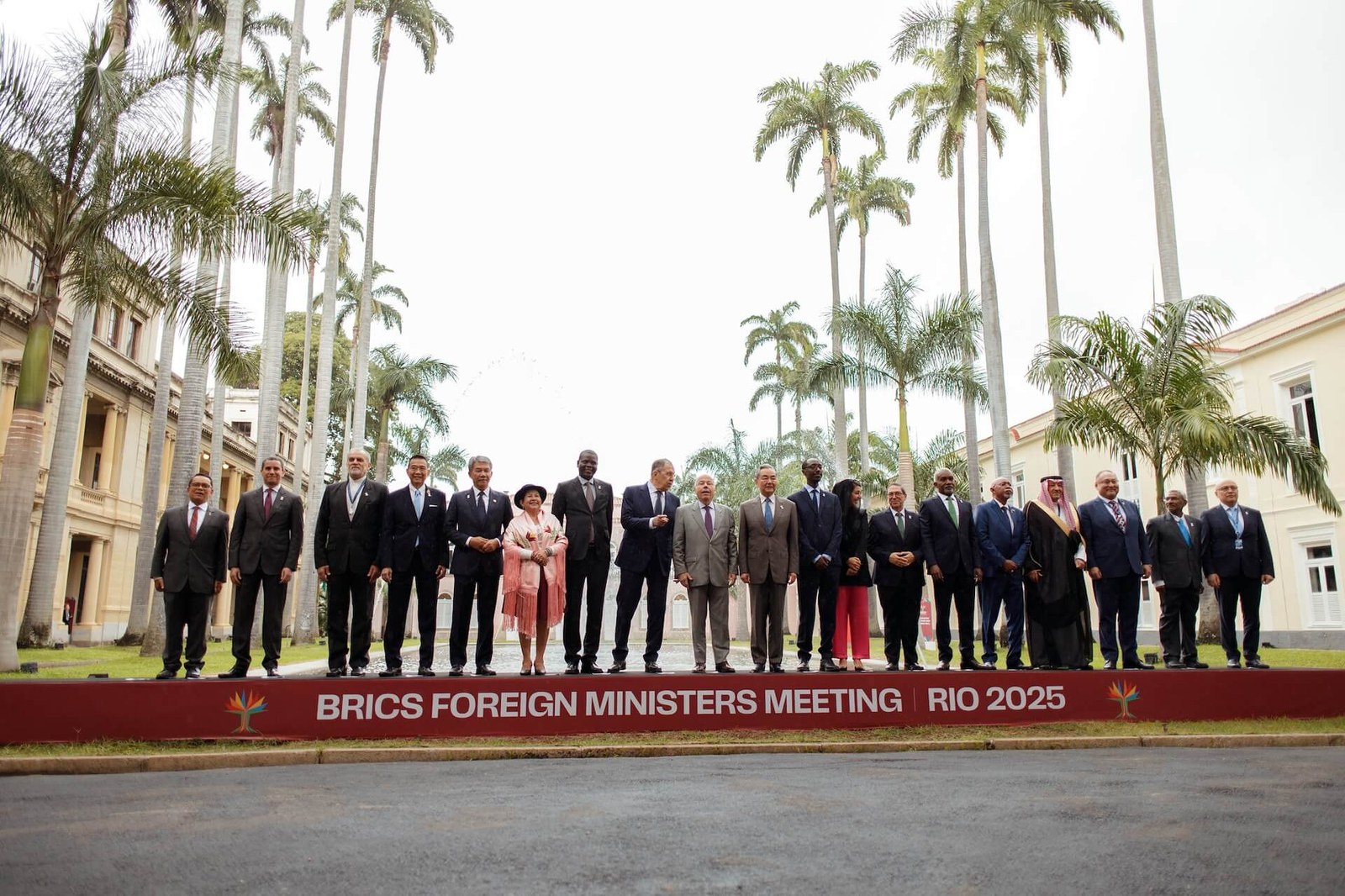BRICS Presidency Declaration reinforces group’s commitment to climate action, energy transition, and reform of global governance institutions
The Brazilian Ambassador chaired the proceedings of the meeting at the Itamaraty Palace (Rio de Janeiro). With full quorum from both member states and partners, progress was made on key agendas that will inform the discussions of BRICS Heads of State and Government at the July Summit.

By Franciéli Barcellos de Moraes / francieli.moraes@presidencia.gov.br
The first BRICS Foreign Ministers’ Meeting following the group’s expansion concluded on Tuesday, April 29, with the release of the Brazilian Presidency Declaration. The 62-paragraph document reflects the maturation of key priority issues under discussion within the group, following two rounds of Sherpa meetings held in February and last week. This document will serve as a basis for the Leaders’ Declaration, which will be discussed at the Summit scheduled for July 6-7, also to be held in the city of Rio de Janeiro.
"We discussed the role of the Global South in advancing multilateralism. This vision reflects the conviction that the global challenges of hunger, energy transition, digital exclusion, and the climate emergency cannot be overcome without a new architecture of international cooperation centered on solidarity, development, and peace," stated Brasil’s Minister of Foreign Affairs, Ambassador Mauro Vieira, who chaired the proceedings.
The Presidency Declaration is the result of collaborative efforts among the highest diplomatic authorities of the group’s member states. Ethiopia and Egypt raised objections to certain sections of paragraph 8.
During the two days of the Ministerial Meeting, discussions were held on issues related to global and regional crises, the reform of international institutions for more inclusive and sustainable governance, and the role of the Global South in strengthening multilateralism. The full participation of member states (Brasil, Russia, India, China, South Africa, , Egypt, Ethiopia, Indonesia, and Iran, Saudi Arabia, and the United Arab Emirates), as well as all partner countries (Belarus, Bolivia, Cuba, Kazakhstan, Malaysia, Nigeria, Thailand, Uganda, and Uzbekistan), reinforces the active interest in coordinated action on the priorities of the Global South.
Sustainable Development and COP30
Highlighting that this year Brasil not only presides over the BRICS but will also host COP30 (the United Nations Climate Change Conference) in November, the text underscores the group's firm commitment to mobilizing its collective efforts in addressing the global climate challenges. All member states reaffirmed their commitment to the Paris Agreement, as well as to reinforcing the United Nations Framework Convention on Climate Change (UNFCCC) as the primary and legitimate international platform for addressing climate change in all its dimensions.
The demand for developed countries to fulfill their obligations under the Convention and make progress in implementing the decision on the new quantified collective goal for climate finance is also included in the document.
New Development Bank
The Declaration celebrates the 10th anniversary of the New Development Bank (NDB), reaffirming its vital role in promoting infrastructure and sustainable development among its member countries. The document highlights the agreement to position the NDB as a new type of multilateral development bank for the 21st century and formally welcomes Dilma Rousseff, former President of Brasil, for an additional five-year term as President of the Bank. It was during Dilma Rousseff’s presidency in 2015, when Brasil hosted the 6th BRICS Summit in Fortaleza (CE), that the institution was established.
People to People
In relation to social participation, encompassed within the People-to-People (P2P) pillar, the ministers reiterated the significance of BRICS interpersonal exchanges in enhancing mutual understanding, friendship, and cooperation. The Declaration emphasizes that such interpersonal relations are fundamental to enriching societies and fostering sustainable economic development. In this regard, the Declaration calls for renewed efforts to promote respect for cultural diversity, the preservation of ancestral heritage, and the encouragement of innovation and creativity, alongside the advocacy of robust international exchanges and cooperation among peoples.
For the first time in history, last week, representatives of civil society were granted formal space alongside the Sherpas to present proposals directly to the lead negotiators of the member countries during the 2nd BRICS Sherpas’ Meeting. This session marks a significant shift in how the group incorporates popular demands into its decision-making process.